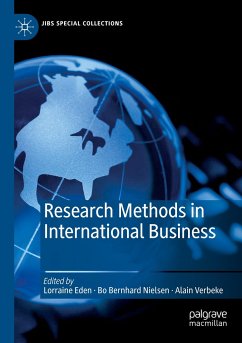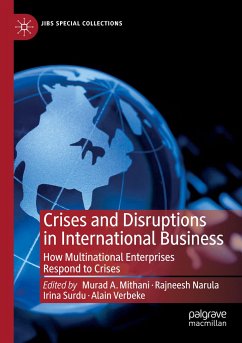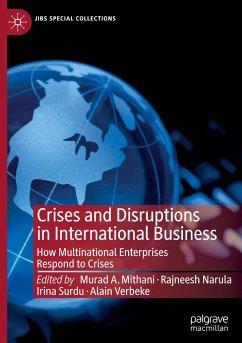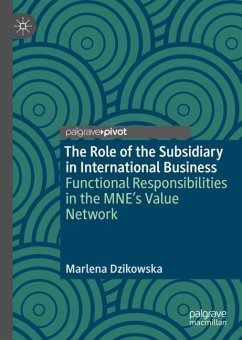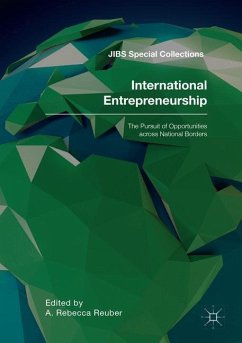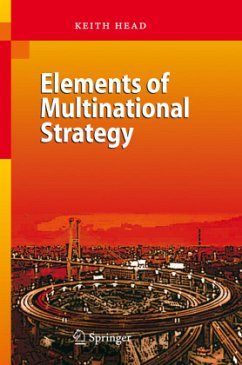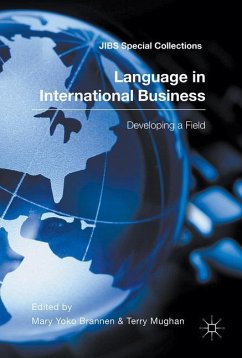
Research Methods in International Business

PAYBACK Punkte
76 °P sammeln!
Showcasing methodological rigour and state-of-the-art methods as hallmarks of modern international business (IB) research, this book offers a collection of the most relevant and highly cited research methods articles from the Journal of International Business Studies (JIBS). Each piece is accompanied by a new Commentary written by experts in the field; some also include Further Reflections by the original authors. Encompassing both qualitative and quantitative approaches, this comprehensive volume explores research design, testing and reporting, as well as specific methodological issues such a...
Showcasing methodological rigour and state-of-the-art methods as hallmarks of modern international business (IB) research, this book offers a collection of the most relevant and highly cited research methods articles from the Journal of International Business Studies (JIBS). Each piece is accompanied by a new Commentary written by experts in the field; some also include Further Reflections by the original authors. Encompassing both qualitative and quantitative approaches, this comprehensive volume explores research design, testing and reporting, as well as specific methodological issues such as endogeneity, common method variance, and theorising from case studies. With recommendations for best practices relating to interaction effects, hypothesis testing, and replicability, this book is a unique and up-to-date reference source on the latest research methods and practices in international business. The book will also be essential reading for those studying any sub-discipline of IB research, including international economics, entrepreneurship, finance, management and marketing.



